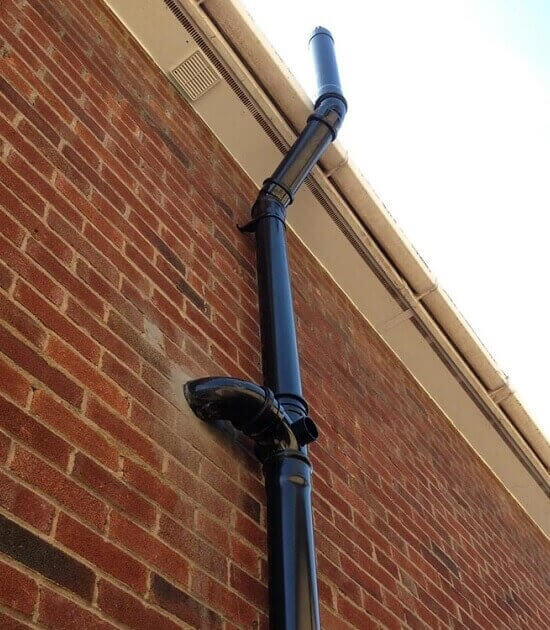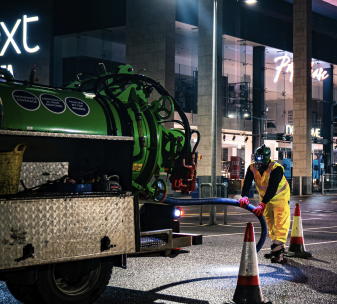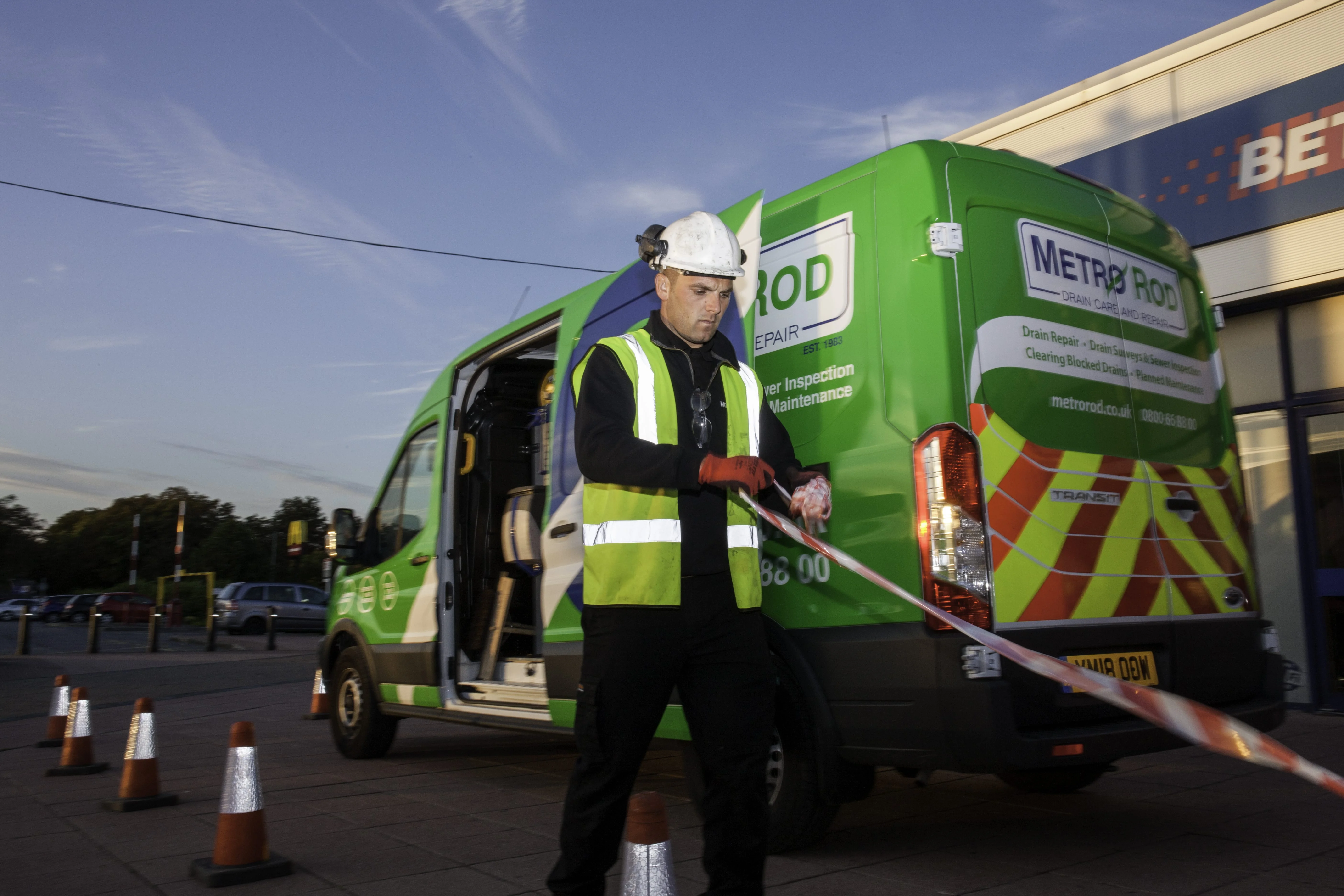Welcome back to our series of articles giving an in-depth examination of your drains!
This week, we’re moving away from the nice, relatively clean world of surface water drainage to dip our metaphorical toes into the ever-so-slightly murkier world of foul water drainage. This means taking a closer look at your soil stack vent or external soil stack.

Foul Water Drainage and Soil Pipes
With that in mind, let’s go back to the beginning – what is foul water?
Foul water is essentially anything produced by or passed through sinks, toilets, showers, baths, and household appliances that use water, such as dishwashers and washing machines. All foul water must be drained into the correct part of your underground drains to enter the sewers, which is usually done through soil pipes. This is stuff we don’t want to get into the ground and thence the water table for pretty obvious reasons!
The cornerstone of both domestic and commercial foul water drainage is the Soil Vent Pipe, aka the SVP, Soil Stack, Soil and Vent Pipe, Stench Pipe, or just Stack. Chances are you’ll be able to see the SVP at your home as they are often installed on the outside of your house, although some soil vent pipes are installed internally.
Traditionally speaking, external SVPs give much better access if they become blocked or have other problems and make our engineers lives much easier. If an internal SVP becomes blocked, it can be tough to access the pipe and clear the blockage; often it involves knocking holes in walls!
Where are Soil Pipe Vents?
The “Vent” in Soil Vent Pipe comes from the fact that the pipe usually stretches from ground to ceiling, with the top poking out just above your roof gutter level. The pipe acts in two different ways. Firstly, it helps remove wastewater downwards; however, this isn’t all. All the waste gases can then escape through the top end of the pipe. The gasses are “vented” at the top of the soil pipe to allow smells and odours from the drainage system to vent in an area that won’t offend anyone. At the same time, a soil pipe vent allows air into the system to prevent siphoning of water from sinks, baths, and shower traps.
Older systems are typically constructed from cast iron pipe work, but we do occasionally come across asbestos type pipe work with modern day systems being made from plastic. It’s not unusual to find the bottom 6 feet or so of an SVP in cast iron, with the rest having been replaced with plastic when blockages or problems occur, which damages the pipe and leads to a replacement.
Internal SVPs are also vented but they have something called an air admittance valve on the end. This is a spring loaded valve that opens to allow air into the system only when required but remains closed and air tight for the remainder of the time. These types of soil pipe vents stop bad smells and odours from getting out of the system and into your property whilst allowing for the system to get the air it needs. It is important to note that SVPs need maintenance as dust and insulation material can get into the spring, damaging the mechanism. That said, you don’t need to panic as they are usually simple to repair or replace.
What to Do If Your Soil Vent Pipe Gets Blocked
Like all other drains on your property, SVPs can and do get blocked up. There are several different aspects to look out for if you think your soil vent pipe or soil pipe vent may be blocked. Things to look out for that point to a blocked SVP include (but are not exclusive to) a sluggish flow of water out of sinks and baths, a build-up of water in a toilet bowl before it is eventually flushed away, and foul odours both inside and outside the property.
Wet wipes are a common cause of blocked SVPs. As well as that, poorly maintained and damaged SVPs can become blocked, causing much larger problems. If a soil vent pipe gets cracked, it can cause water and waste leaks. There may be a poorly fitted or displaced joint where a lateral waste pipe joins the soil pipe or where it has to bend, and in both cases, the smooth and fast flow of wastewater may be interrupted, allowing solid waste to build up. Cast iron SVPs can be more prone to blockages as they rust, making internal pipe walls rough and more likely to snag material such as wipes, sanitary products, and toilet paper.
Help With Your Soil Vent Pipe
As ever Metro Rod Birmingham are well versed in resolving your SVP issues, from camera surveys to EMC machines to high-pressure water jetting, we are trained and equipped to get things flowing for you! Give us a call now on 0121 776 8838 if you suspect any issues with your soil pipes.
If you are not based around the Birmingham area, don’t worry. At Metro Rod, we have engineers placed all around the country to help you with any drainage solutions you may need. You can find your local Metro Rod engineer here.

Talk to your local Metro Rod specialist
We are always happy to arrange a free site assessment and no obligation quotations for any work you might need. Alternatively, you can call our emergency hotline number on 0800 66 88 00
Get in touch Drainage Services
